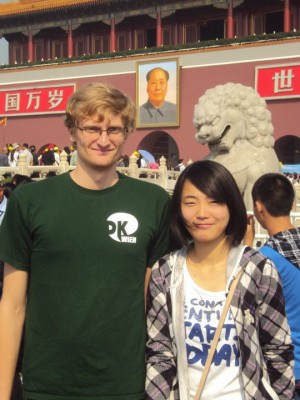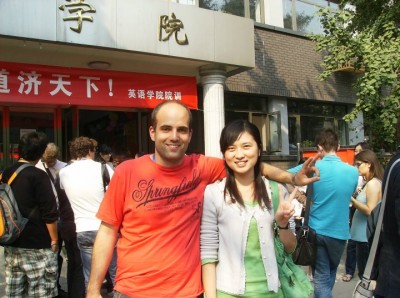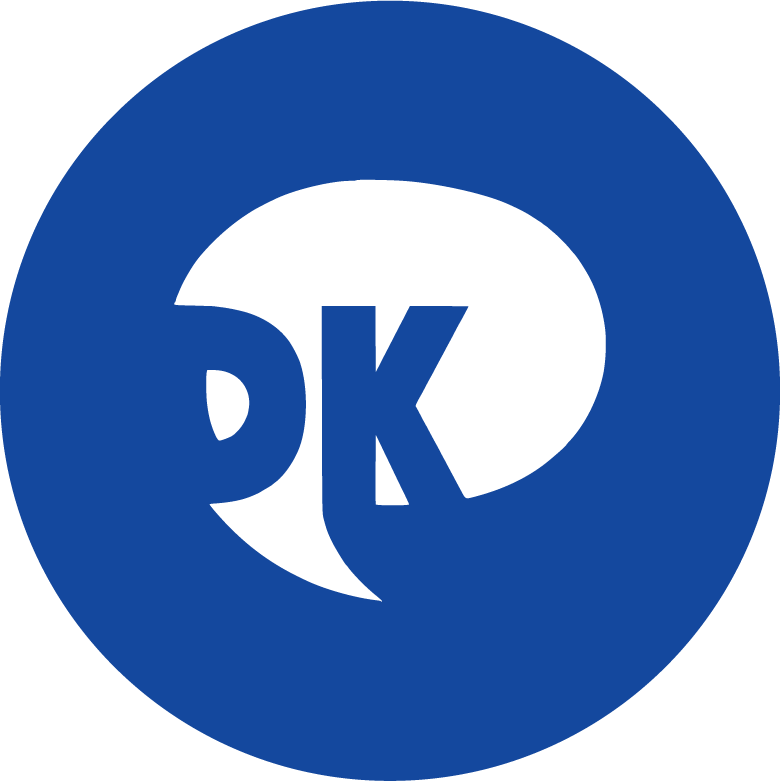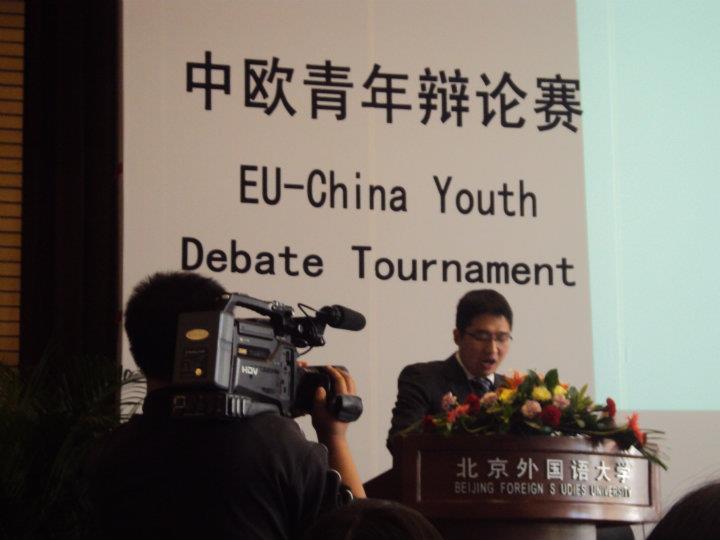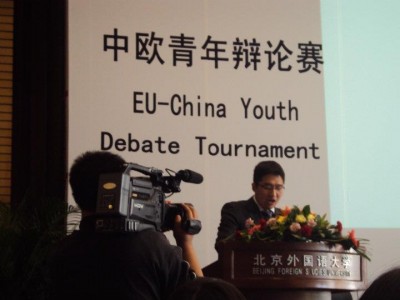
In simplified Chinese, the set of letters so strongly supported to replace a much more complex set of characters, the word China is written as 中国. The first sign meaning center, the second meaning country.
The second character looks like the sign 王, meaning monarch (and also one of the most common last names), but can be also used to describe something precious, like a crown, that is sheltered by a wall.
The translation of China being “The Middle Kingdom” or “Das Reich der Mitte” is an old one, but the introduction of the simplified characters started in 1952 by Mao Zedong that taught millions of people to read and write, gave a simple explanation for China’s policies at that time:
China is a valuable Gem, that needs to be protected by a wall and sheltered from malicious influences that come from outside.
And often, the English language skills of teenagers are even better. Another visible sign of China opening up is this year’s EU-China Youth Debate Tournament. Being one of many events under this year’s Chinese motto year “EU- China, Year of Youth” this one was organized by the Beijing Foreign Studies University, which also celebrated its 70th anniversary during the tournament and has quite some experience in hosting Chinese debating competitions, mainly the FLTRP cup in May (Article by Mathias Hamann on SpiegelOnline, German) and this years Chinese nationals in June.
Invited were the 16 breaking teams from the Chinese national debating tournament, coming from Universities in Beijing, Xi’an, Shanghai or other Chinese cities, and 16 teams that outperformed the teams from their country in 2011’s European Debate Championships.
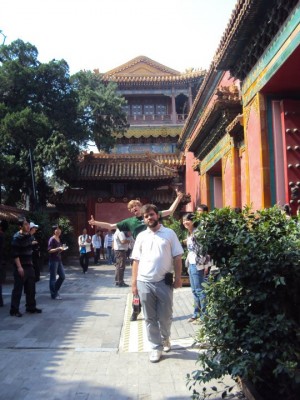
Then, all the debaters were randomly assigned to local debaters, forming true EU-China debate teams.
Christoph Jäger formed team “Green Hunter” together with 王尼娜 (Wang Nina), and Leonhard Weese and 陶静 (Jing Tao) formed team “We have siblings!”
In respect to the many strong Chinese and European debaters that were invited, Debattierklub Wien is quite happy to announce that both teams broke to the quarter finals.
Invited were teams not only from the European Union, but beyond that, sparking the debate of motion number 1 about who should, or should not be part of a EU and furthermore a EU-China Debate Competition.
As most of the debate motions require the understanding of either a Chinese or a European concept, there was a need to explain these concepts to our debate partners. Understandably, preparation time was extended to 20 minutes. Because of that, and the amount of time debaters got to spend together after the rounds asking follow up questions, it was that most of us learned more about China in one week than we had learned in our life time before.
–
The Chinese middle class as well as Chinese Universities seem to enjoy large quantities of freedoms and autonomy. As China is opening up, so are the Universities and the people. Imported products are widlely available, and thanks to a lack of VAT often cheaper than in their home countries. As technology gets cheaper every day, so do the opportunities to climb the Great Firewall and get a great view of the world’s and China’s problems and opinions. And since Chinese students are now able to communicate with their international peers, they know where to look.
And when seeing China’s success, and the greatness of this debating tournament one might conclude that this is not so much without the knowledge or against the will of the Communist Party afterall.
Motions:
THBT EU membership should not be determined on the basis of geographical criteria
THBT media company owners have the right to influence the anture of news coverage
THBT China should abolish the Gaokao in favor of allowing the universities to establish their own criteria
THBT it is legitimate to shut down social media like Facebook or Twitter during riots
–
Quarters: THBT a Chinese Marshall Plan should be initiated in order to save the Euro
Semis: THW demand international corporations operating in China to uphold the same environmental standards required in their home country
Finals: THBT Mandarin should be taught as the primary second language in all EU schools
–
The tournament was one by Yiming Zhang from Fudan University, Shanghai and Manos Moschopoulos, University of Athens (Closing Opposition). According to Chinese debate traditions, the 2nd place at the final was awarded the Runner Up distinction. (Opening Proposition).
The distinguished European speakers at the tournament were Scott Ralston, James Hardy, Manos Moschopoulos and Jeroen Heun.
The three honored Chinese speaker were 潘向雪 (Pan Xiangxue), 朱杨博 (Zhu Yangbo) and 温超影 (Wen Chaoying).
–
–
Pictures, from top to bottom:
1) 张一鸣 (Zhang Yiming) from Fudan University, Shanghai, Manos’ debate partner, speaking at the finals. We don’t know if the debate made it to Chinese national television in the end.
2) Manos and Leo inside the Forbidden City
3) 陶静 (Tao Jing) and Leo in front of Chairman Mao’s portrait at Tian’anmen Square
4) 王尼娜 (Wang Nina) and Christoph Jäger at BFSU
–
–
This article has been formatted to fit your mind.
Thanks Michael Shapira for the support! Ah, Vienna IVs CAs, always there to help…
Also check out the photo slide plus article at http://english.peopledaily.com.cn/90782/7604839.html
–
http://cctv.cntv.cn/lm/dialogue/01/index.shtml
